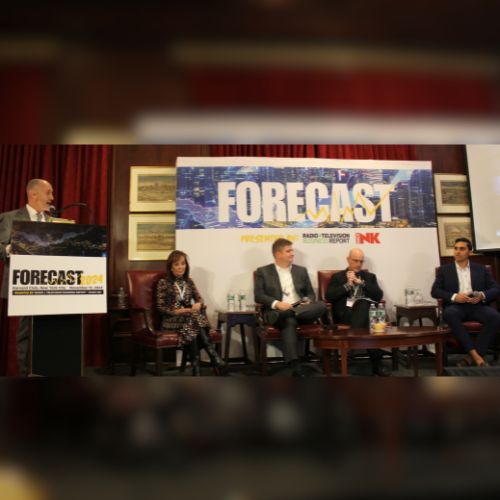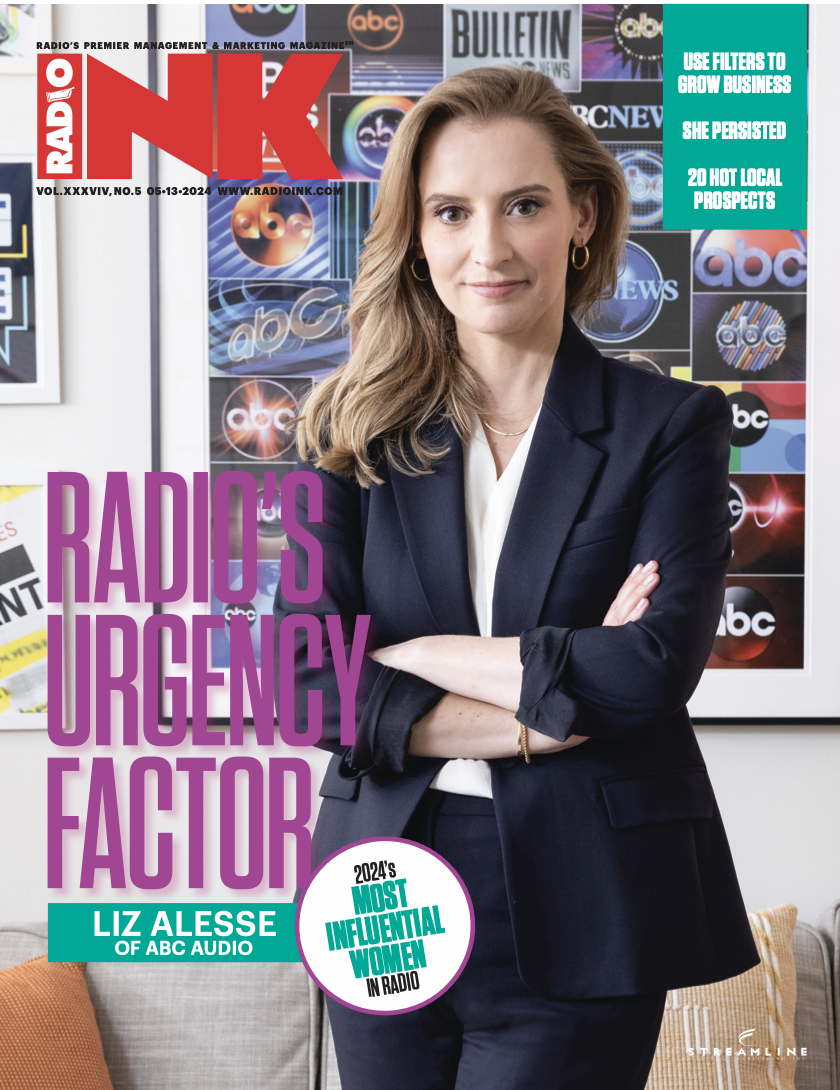
Even with so many panels and advertisements introducing AI and its features across the past year in radio, it feels like the surface has barely been scratched on meaningful discussion and conversation on AI’s impact and what broadcasters need to know. That’s why Forecast 2024 brought an expert session, moderated by Benztown President Dave “Chachi” Denes, to take a pragmatic, honest dive into AI in radio.
Beasley Media Group CEO Caroline Beasley shared insights into their approach to AI, noting that the company initially imposed a total ban on using ChatGPT. “That lasted about 30 seconds,” she said. Realizing the tech’s unavoidable spread and usefulness, Beasley Media now focuses instead on setting guardrails to respect intellectual property and avoid legal issues, particularly concerning using likenesses or content that might provoke legal action.
Blank Rome Philadelphia Copyright Attorney David Perry highlighted significant legal challenges associated with voice cloning, including copyright infringement, permissions for cloning technology, deepfakes, and false attribution rights. He also touched on the balance between rights and fair use, particularly in the context of the pending NO FAKES Act and contractual rights.
Booth AI Co-founder and CEO Nick Locascio pointed out that adopting transformational AI technologies is occurring at unprecedented speeds, echoing a statement from Google’s CEO that AI is, “The most profound technology humanity is working on. More profound than fire or electricity.” He emphasized that this isn’t hyperbole but a reality of today’s tech landscape.
Graham Media Group Director of Transformation Michael Newman discussed the potential of using text settings to prevent OpenAI bots from crawling websites. He also mentioned proactive policies necessary to ensure employees do not misuse company content with AI tools like ChatGPT.
Perry raised concerns about ChatGPT’s tendency to fabricate answers, leading to possible accusations of improper software use. Given the potential for legal disputes, he anticipates a shift towards licensing as a solution, like the class action suit involving Sarah Silverman against Meta and Open AI. Locascio stressed the importance of defining originality in the context of AI, as learning often involves building upon existing works.
Beasley and Newman concurred on AI’s potential to enhance efficiency in broadcasting. Beasley emphasized the need to continue utilizing AI to improve operational efficiency. Newman pointed out the potential for AI to fabricate responses in Q&A scenarios, which could play into SEO strategies and community engagement.









Beasley is the same company that has told us to promote a national contest for $1,000. Then tease the website. Then announce the song. Then tease the next contest.
They literally pay me to do nothing. Actually, I’m on CHATGPT my entire morning show creating prompts that have nothing to do with radio. What’s funny? My PD says I’m doing a “great job” 🙂 Of course I am, because I’m following the Beasley guidebook. “Just Be Boring”, but say that we’re local and everything is all good! LOL!
Yee-haaaawwwwwwww…..
Ride the clueless gravy train brother! I respect your stones for posting lol.
More interesting than ChatGPT is the use of AI for facial recognition. The Ukranian government has been using an extremely powerful tool from a small company that has been scraping every photo and image it can find on the Internet, especially social media, to identify millions of people, mostly Russians, to use in future war crimes investigations. Everyone who has had a facial image on Radio Ink is in that database!